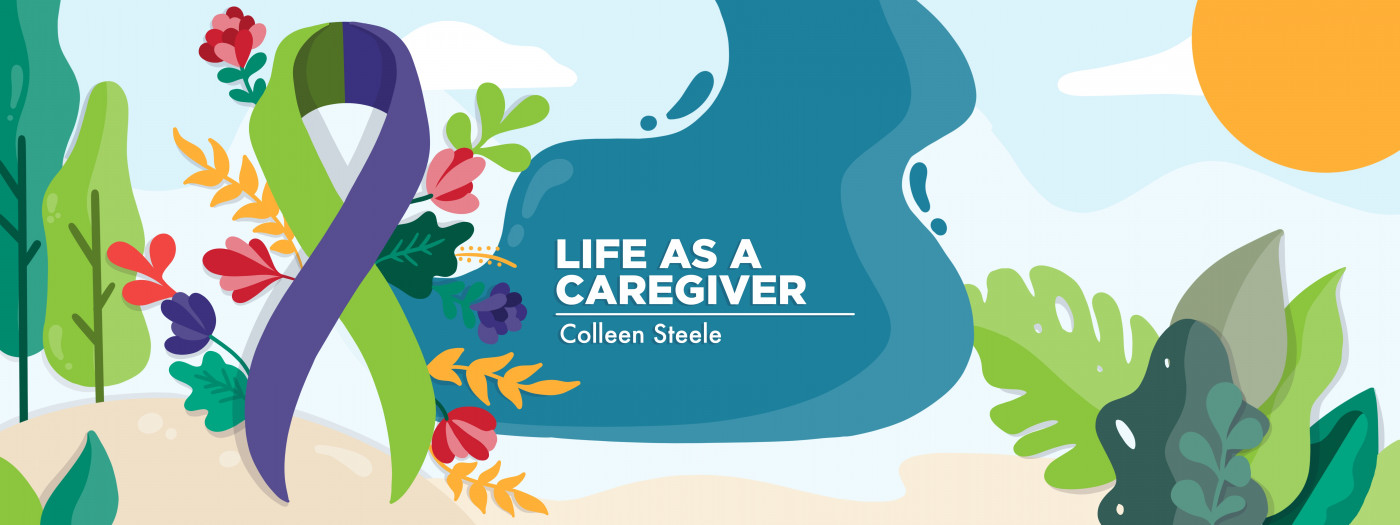It’s PH Awareness Month, and Of Course the Caregivers Are Here
The importance of recognizing both PH patients and caregivers this November

My husband, Brian, was born on his parents’ wedding anniversary. As a child, he disliked sharing his special day with them, but he grew to appreciate the connection.
When I informed Brian that November is Pulmonary Hypertension (PH) Awareness Month and National Family Caregivers Month, he noted that they’re worthy of being recognized independently. Still, promoting awareness of both fits together like pieces of a puzzle.
PH Awareness Month encourages us to designate time to take action and spread awareness and resources.
In 1997, President Bill Clinton proclaimed November to be National Family Caregivers Month. According to the National Day Calendar website, it’s a time to recognize the dedication of family members who provide round-the-clock care to loved ones.
Caregivers wear many metaphorical hats. They are advocates, therapists, administrators, doctors, nurses, social workers, wardens, maids, chefs, pharmacists, educators, taxi drivers, and social coordinators. The list is endless.
Let’s not forget that under all those hats are humans. They are people, not exempt from their own health challenges, life stresses, and emotions.
As we continue through November, help spread PH awareness by sharing the experiences of both patients and their caregivers. The “30 Days of PH” stories, shared on this website over the past four years of Novembers, highlight many of these experiences.
An awareness month is also a time to advocate by taking action. Fellow PH News columnist Mike Naple offers excellent suggestions on how to do this in his recent column, “How Will You Answer the PH Community’s Call to Action?”
Advocacy is focused primarily on patients, but let’s also offer consideration and thanks to family caregivers.
I’m a caregiver to my son Cullen, who received a heart and double-lung transplant eight years ago after a six-year battle with PH. Since then, my caregiving experience has extended to other family members needing my support and help over the years.
Encourage and support your caregiver to take care of their own health and well-being. Your health and quality of life rely heavily on the stability of theirs.
Be aware of caregiver stress syndrome
Based on my personal experiences and light research, I found information from Today’s Caregiver magazine to be the most helpful when it comes to caregiver health.
According to one of its articles, caregiver stress syndrome is characterized by physical, mental, and emotional exhaustion. As personal injury lawyer Ron Ingber writes, “It typically results from a person neglecting their own physical and emotional health because they are focused on caring for an ill, injured or disabled loved one.”
I found many websites that support the concern that caregivers are often in poor health. Many face health issues, such as high blood pressure, diabetes, a compromised immune system, heart disease, arthritis, depression, and anxiety.
The real eye-opener for me was Ingber’s claim that studies have shown that “caregivers between the ages of 66 and 96 have a 63% higher mortality rate than non-caregivers of the same age.”
Be aware of the signs
I think it’s reasonable to expect that caregivers will occasionally experience a few of these symptoms. When they become constant behavior, one might consider that the caregiver needs some caregiving.
The Today’s Caregiver article notes that symptoms of caregiver stress may include “changes in appetite, weight or both; feeling blue, hopeless, irritable, or helpless; withdrawal from friends and family; changes in sleep patterns; getting sick more often; feelings of wanting to hurt yourself or the person for whom you are caring; loss of interest in activities previously enjoyed; emotional and physical exhaustion; and irritability.”
How can you help?
Besides the hereditary odds, neglecting self-care is all too often the biggest issue for family caregivers. They don’t make time to schedule or attend doctor appointments. More concerning is the habit of ignoring symptoms until the caregiver becomes too ill and can no longer avoid seeking professional medical help.
Often contributing to health problems are caregivers’ poor sleeping and eating habits and a simple lack of time for themselves.
If you’re living with PH, do what your caregivers do for you and speak up. If you notice something amiss, encourage or even insist they go to the doctor. When they feed you, make sure they also feed themselves. Suggest that they sleep when you do. Having a good day? Suggest that your caregiver take some “time off” and do something they enjoy or visit a friend.
Many hands make light work. If there is more than one caregiver in the home, try to distribute responsibilities evenly. Only one caregiver? Encourage them to accept help from friends and the community when it’s offered.
PHamily includes patients and caregivers. It’s important to celebrate both!
Note: Pulmonary Hypertension News is strictly a news and information website about the disease. It does not provide medical advice, diagnosis, or treatment. This content is not intended to be a substitute for professional medical advice, diagnosis, or treatment. Always seek the advice of your physician or other qualified health provider with any questions you may have regarding a medical condition. Never disregard professional medical advice or delay in seeking it because of something you have read on this website. The opinions expressed in this column are not those of Pulmonary Hypertension News or its parent company, Bionews, and are intended to spark discussion about issues pertaining to pulmonary hypertension.









Leave a comment
Fill in the required fields to post. Your email address will not be published.